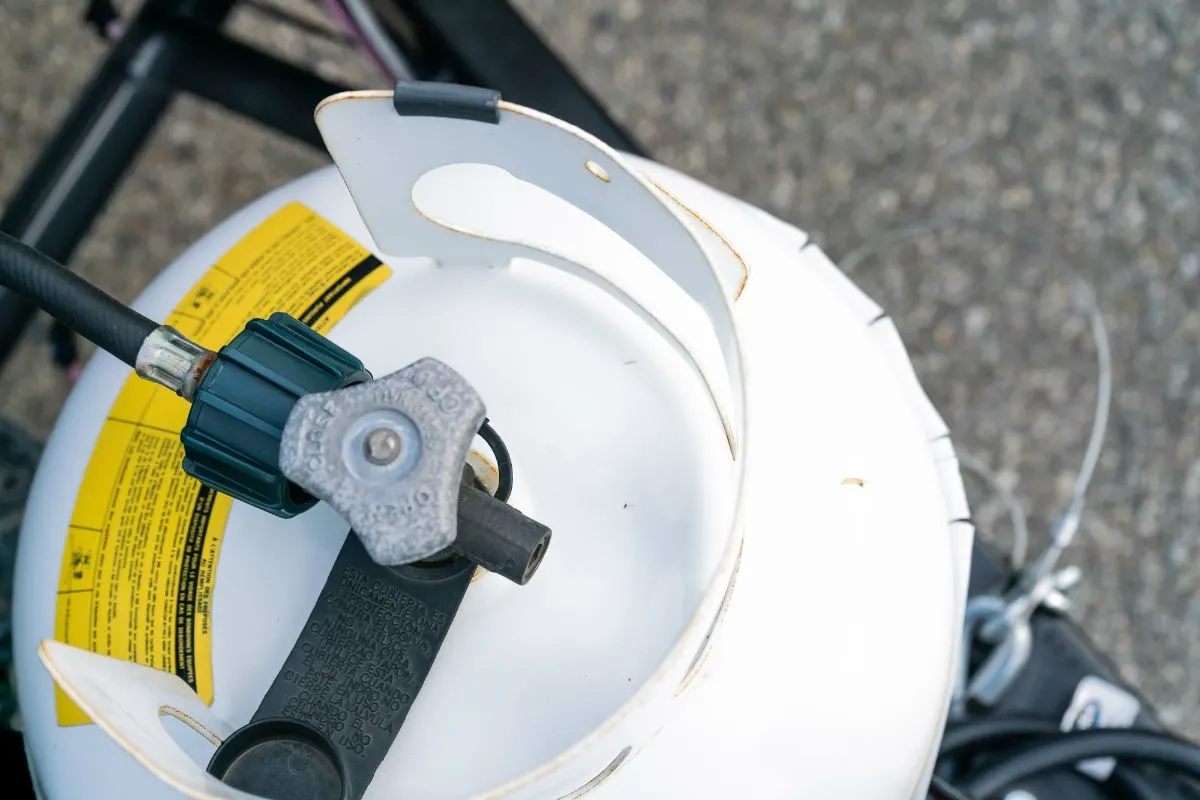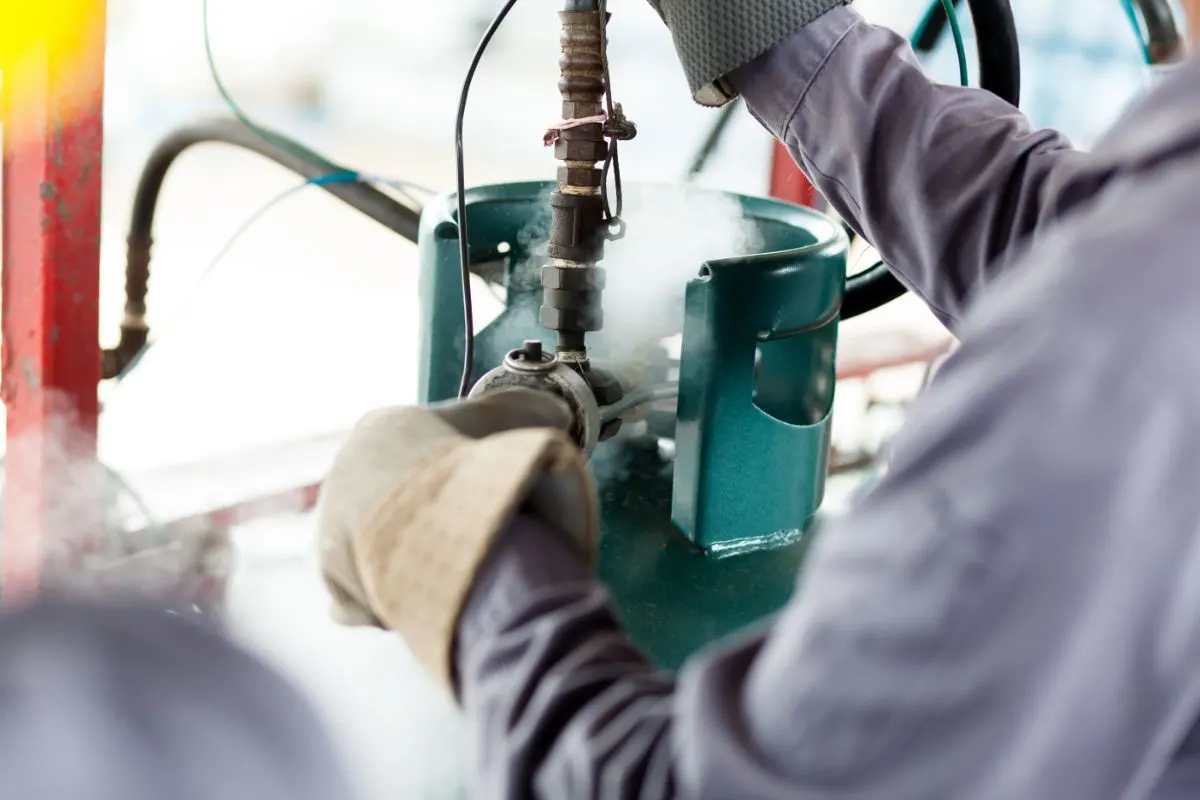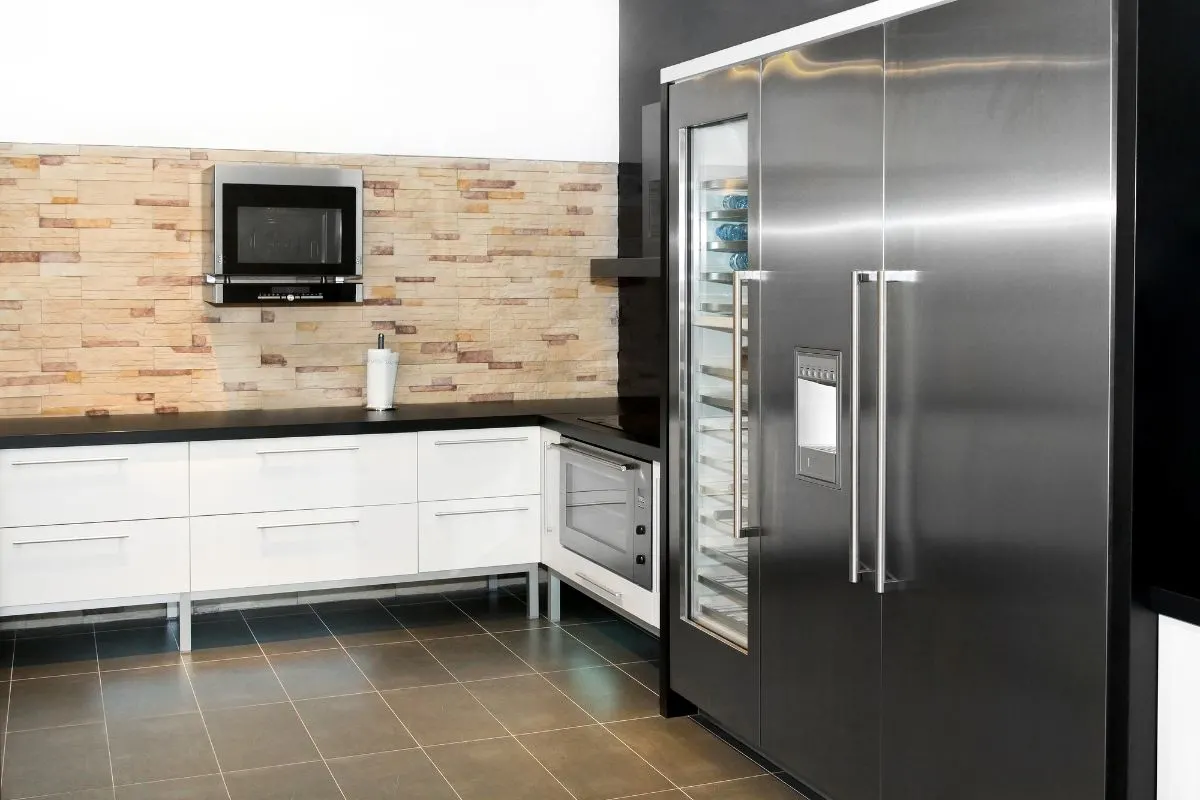
An RV fridge will run just on propane, but you need enough battery power to start it. Otherwise, you might have to light its pilot it manually with a match but use caution when you do this.
Will my RV fridge Work on Just Propane?
“This energy boost is needed to open the gas base and spark the ignitor,” says RV expert Elaine Knight.
An RV fridge will run once you have used the batteries to start it. However, it won’t start working if you haven’t connected the batteries or if the battery doesn’t have a charge.
You’re going to need to always carry at least one charged 10.5-volt battery with you. Otherwise, even if you power it using liquid propane gas, it will not start. The only other option is to light it yourself without the electricity or battery power.
Can I use a Match to Live my RV Fridge?

Of course, you must have an RV fridge that allows you to run it on propane instead of electricity, like a standard household fridge. Anyway, I didn’t even think about the possibility of using a match to light it until right now.
You need to be careful when doing this, so you don’t burn down your camper, but still. I found out it’s possible to light a propane RV fridge with a match – or a lighter, or another fire source.
This concept came to me after I remembered I have lit camp stoves and propane heaters the same way. Usually, this advice may apply to older refrigerator models, such as ones made in the 1980s.
However, it does provide you a way to keep a modern fridge running even if you’re short on electrical power. Obviously, it won’t work on a fridge that runs just on electricity. Otherwise, it should work.
How Does an RV Refrigerator Work?
A chemical reaction takes place between the ammonia that you heat using your RV fridge’s power source along with water and hydrogen. This works by heating the ammonia source within the fridge, which evaporates and condenses. After this happens, it cools the contents of your fridge.
You typically would use either propane flame or electricity to keep your fridge running and your food cold. Again, you typically only need the electricity to start your refrigerator but not for continuous operation.
Otherwise, you do have to light it yourself, which usually isn’t difficult. However, it does call for the same safety precautions you would use when lighting a standard household gas oven or a camp stove.
How Much Propane does an RV Fridge Need?

You’re going to need about 1.5 lbs of propane every day, or at least for the times when you have perishable food stored in it.
Some RVs help you conserve either propane or electricity, depending on what supply you happen to have more of. In fact, some mobile units have an automatic switch for changing your preferred refrigerator power source.
When Should I Use Electricity or Propane for my RV?
Your battery will continually charge when driving, so that’s an excellent time to take advantage of the unlimited DC that a moving RV can provide. Then, switch it over either manually or automatically when parked to tap into your propane supply.
How Efficient is an RV Fridge?
Newer RV refrigerators probably use about half the amount of propane that an older model would. RV fridge performances have gradually improved from the 1970s to the present.
Is a Propane Fridge Dangerous?
It can be dangerous to run a propane fridge. You need proper ventilation if you’re going to use it, so open your camper vents, if your unit has them. Otherwise, make sure you crack open at least one window enough to allow the carbon monoxide to escape.
Product manuals will usually tell you how wide to keep your vent or windows open. I recommend that you use that information pertaining to your camper and the fridge model installed in it.
I also suggest at least 12 square inches near the exhaust source, but even more air spots throughout your unit will provide you additional protection against CO poisoning or asphyxiation because of breathing in other harmful fumes.
It’s also wise to always have a carbon monoxide (CO) detector installed in your RV, especially if you travel for days, weeks or months at a time. Even if your unit came with the propane fridge, vents and toxic fumes identifiers can also warn you if your fridge isn’t working right.
If you do detect issues with your cooling equipment, make sure you have it maintained as soon as possible or just unplug it for a while.
Are Propane Fridges Bad for the Environment?
As of 2021, the average amount of allowed parts per million (PPM) of CO in a living room totals 50 PPM. After the 1980s, the amount of CO emitted from RV fridges usually ranged no more than 30 PPM with .001 PPM making it into a room.
Make sure you check your product specifications if you ever need to replace your unit’s refrigerator, and don’t buy an RV that has specs worse than this.
Is Propane Cleaner than Gas?

Long-term propane studies have shown that this fuel burns cleaner than natural gas or petroleum-based fuels. Some reports use old data. However, as of 2003, propane reportedly emits about 12% less carbon dioxide than gasoline. Apparently, “propane auto gas” could reduce the presence of airborne carcinogens by about 90%.
Keep in mind, however, that this same report does also classify propane as a liquid subtype of natural gas. Still, Hannah Greinetz, who has an MBA in Sustainable Management from Presidio Graduate School, says this:
“For a country focused on energy independence as the US is, propane seems to be an extremely viable transition fuel to a cleaner economy and an economy that relies on domestic energy sources.”
This report published by Hannah Greinetz came from 2015. Imagine how many improvements have been made by 2022, and many countries are working toward reaching zero emissions by 2050. Cleaner fueling options, such as propane, could be part of the answer when you don’t need or want to use electricity.
What is the Difference Between an RV and a Household Fridge?

Traditional refrigerators function with the help of a compressor, but RV refrigerators don’t usually need that. RV fridges don’t have many moving parts, so they might last longer when traveling then a household one.
Neither the construction materials and nor the internal mechanisms of a home refrigerator could probably withstand an RV journey. They’re just not usually made for that purpose.
On the contrary, food cooling systems typically constructed for recreational use made have more durable materials. They usually will still operate even when you hit potholes or have to drive down sharp, curvy roads.
This doesn’t mean you should drive recklessly in your camper. However, an RV fridge does keep you equipped on the road.
Some RV refrigerators, also as absorption refrigerator don’t require an RV battery to keep them running. They also don’t require electricity if you decide to light it manually.
It’s not that you can’t use a traditional refrigerator, such as the small cubic type people use for beverages. However, using in them in an RV instead of one made for travel doesn’t provide you the durability and efficiency you need.

